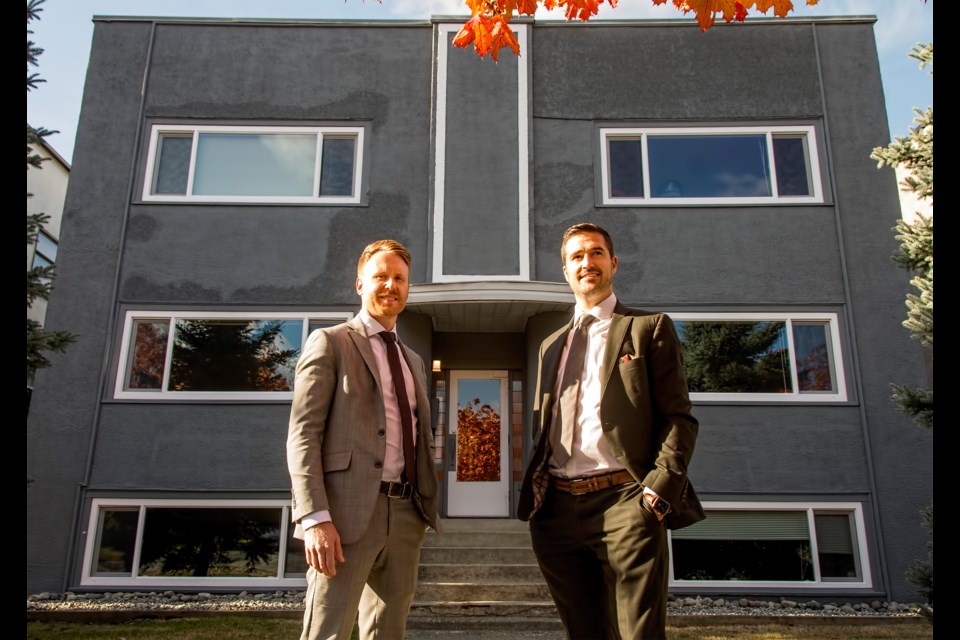Soaring rental and interest rates have flipped the script on British Columbia’s housing investment outlook, with rentals becoming the dominant play in the multi-family sector, a trend that could accelerate if B.C.’s new premier gets his way.
As of the end of September 2022, a total of 183 rental apartment buildings had sold for a total of $2.11 billion, but sales fell in the third quarter, down to just 14 transactions, the lowest level for any quarter in seven years, according to a survey by Marcus & Millichap of Vancouver.
The sales downturn is partially linked to the increase in lending rates, following sixth consecutive increases since February, including a 50-basis point hike by the Bank of Canada on October 26.
Mortgage rates for multi-family rental buildings insured by Canada Mortgage and Housing Corp.(CMHC) are among the lowest available, but they have more than doubled over the past year to 4.5 per cent for five-year and 10-year terms, said James Blair, senior vice-president of Marcus & Millichap, who prepared the Q3 report with senior vice-president Patrick McEvay.
“There has been a big change, “ Blair said, who noted that buyer equity requirements have increased substantially.
Multi-family investors, therefore, need higher down payments, and the cost of debt is moving higher than the capitalization rate, which had averaged 3.27 per cent so far this year.
“The cap rate is the key now,” Blair said.
The result, McEvay said, is that many investors are waiting to see if further rate increases are coming, since mortgage rates are the single most important input cost for landlords.
Still, existing B.C. landlords are reaping the highest rents ever seen in Canada and many owners are already locked into low-cost 10-year CMHC-insured financing.
November marks the second month in a row in which the top five most expensive cities to rent in Canada were all based in B.C.
A recent study from liv.rent shows that the average rent in Greater Vancouver for an unfurnished one-bedroom apartment increased from $2,256 in October to $2,317 this November. North Vancouver rent rose by 10.4 per cent, making it the most expensive city in Canada with an average of $2,760 per month.
According to Blair, rents for new and recently renovated one-bedroom apartments in the City of Vancouver now average $3,000 per month.
“There is still lots of demand from private buyers,” Blair said, which Marcus & Millichap note now represent 77 per cent of total Metro Vancouver sales as institutional investors “move to the sidelines.”
Action in the fourth-quarter 2022 suggests that investors are willing to spend big for older rental assets in prime locations, however.
On November 2, a 10-unit older multi-family rental building in Vancouver’s Kerrisdale sold for $4.08 million, according to brokage Colliers, Vancouver.
On November 23, Goodman Commercial, Vancouver, closed a $35.25 million transaction for a 74-unit rental apartment building near Kits Beach in Vancouver. That works to a price of more than $476,000 per apartment in the 56-year-old building.
Marcus & Millichap listed a “totally renovated” 12-unit older rental apartment building in Vancouver’s Cambie corridor in November at $666,000 per door.
The total dollar volume of apartment building sales through the first three quarters of this year was down 35 per cent from a year ago as the gap widens between seller’s expectations and what buyers are willing to pay.
However, for those who want to sell an older apartment building, where rents are considered “affordable,” the new B.C. premier has proposed a $500 million government fund to help First Nations and non-profits buy them.
Marcus & Millichap, however, believes it is a trio of strong trends, rather than questionable government policy, that points to robust multi-family market once interest rates level out.
These are:
• Immigration: With Canada increasing its immigration target in 2022 to 411,000 new permanent residence, and 500,000 annually by 2025, Metro Vancouver is expected to welcome roughly 55,000 newcomers per year. This influx of new people will continue to support robust rental demand as newcomers tend to favour the apartment market over ownership. (The federal government said it will ban foreign home buyers for two years beginning on January 1, 2023, which means new immigrants will not be able to purchase before they arrive.)
• High-priced housing: The benchmark composite home price in the Lower Mainland is now $1.09 million, the highest in Canada, and the typical Greater Vancouver condo apartment sells for more than $727,000. These high prices will keep potential homeowners on the sidelines and the rental vacancy rate near 1.5 per cent, among the lowest in the country,
• Strong labour market: Vancouver has added roughly 15,000 jobs so far in 2022 and the unemployment rate currently sits at a tight 4.3 per cent, similar to both Victoria and Kelowna. This strong labour market translates into healthy apartment demand as people earn wages sufficient to pay rent, but not enough to own, keeping them in the apartment rental market.



